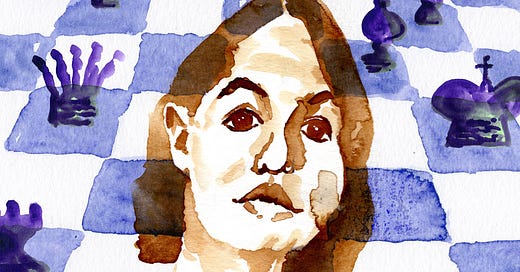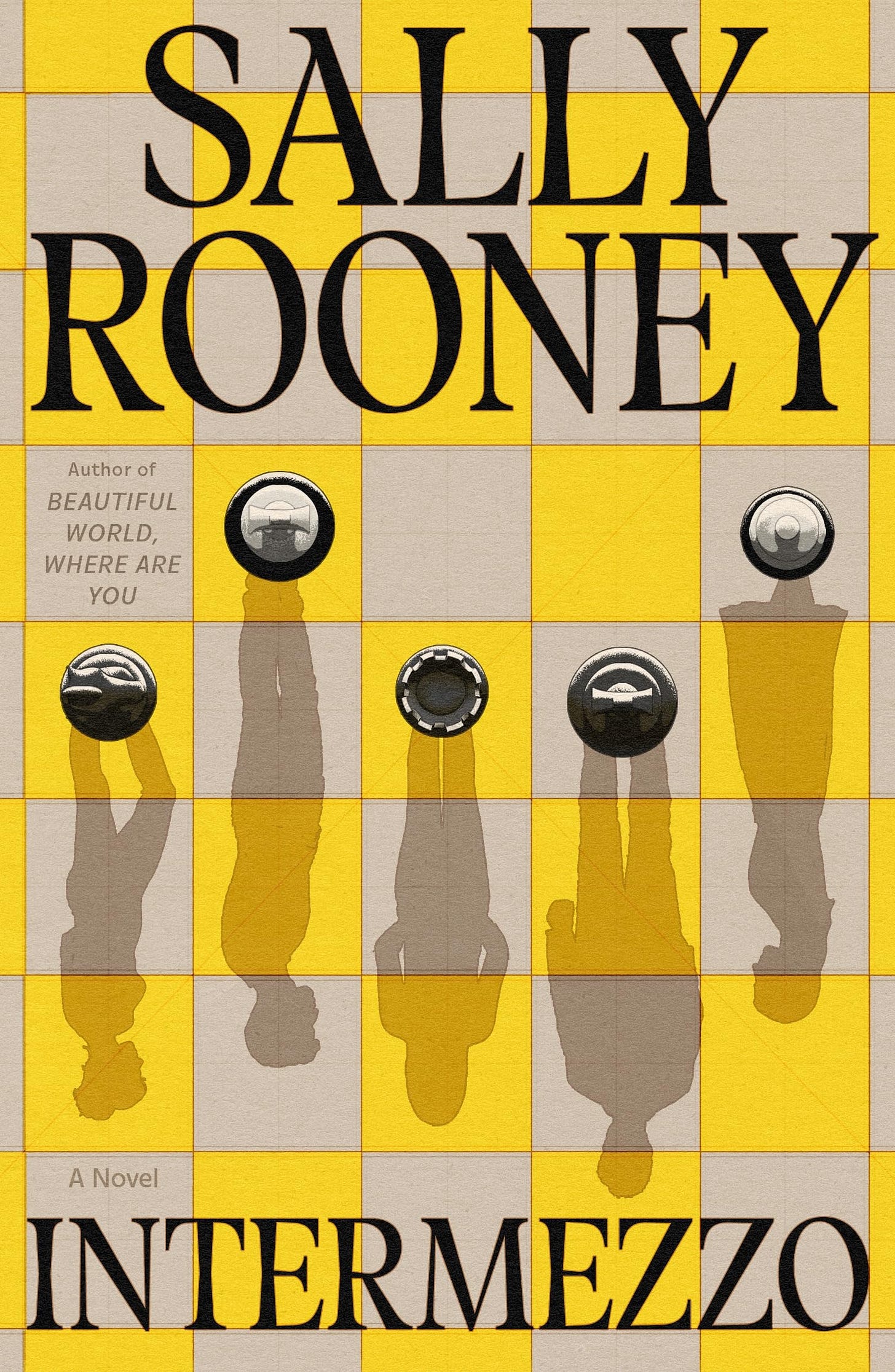Intermezzo, by Sally Rooney
Author - Sally Rooney
Page/Word Count - 464 pages, 89.3K words
Awards
Foyles Book of The Year (2024)
British Book Awards (2025) - shortlisted
An Post Irish Book Awards (2025) - shortlisted
Original Publisher(s) - Faber & Faber
Original Date of Publication - September 2024
(bad) Synopsis
Relevant tags include ‘grief’, ‘depression’, ‘autism’, ‘eldest child syndrome’, ‘situationships’, and ‘the typical sibling experience’.
Notes/Opinion
I know it’s been a while, but I just recently got to reading this one.
Let me just say, it was pretty good!
This is actually my first Sally Rooney novel, so please keep that in mind. Maybe I’ll like other stuff by her even more, maybe this one will be crowned favorite and I actually won’t like the other books that much. Maybe after a while, her structure will come to feel a bit formulaic, who knows?
Anyway, moving on to the actual book, something that really stood out to me is the author’s unconventional yet iconic style.
She doesn’t use quotation marks and she’s a little blunt with her sentences sometimes, only giving you the information you need, not a letter more. Admittedly it takes you a bit to kinda acclimate, but once you do, her voice is pretty distinct and fresh. People who choose to become assholes over grammar and syntax won’t like it, but I think Sally Rooney is an author who really does her own thing with the English language (not unlike Shakespeare back in the day), and that can be a good thing. Also, given the history of Ireland with the British Empire, it’s understandable that the author wouldn’t want to just blindly follow the rules. I mean, if you’re going to colonize a big chunk of the known world and push your language, you must come to terms with the fact that people are gonna take it and run, adding a little something of their own. That’s just how it is.
The author’s visual descriptions are quite effective as well, there are scenes where you can imagine everything almost perfectly, down to the camera work, because she’s just that good. The part at the beach, for example, or when Ivan reunites with his dog.
Regarding the plot, I enjoyed reading about all these dynamics between different characters. I don’t know if I ship Margaret and Ivan, for example, but I feel like this book is more about the human connection element and the intimacy, rather than actively wanting a given couple to be endgame.
The two brothers have these very distinct voices, and I like that. Ivan is very insecure, but also quite rational and observant. He has this detached sort of view on life and the world around him. Peter, while seeming to have his life together, is very sensitive and prone to following his impulses. He copes with feeling powerless through petty, surface-level acts of competence that make his younger brother mark him off as fake and uncaring.
Sally Rooney is very realistic in the way she portrays people, and I like that. Her characters aren’t these cut-outs, these caricatures where you can easily tell who’s the good guy you’re supposed to root for. She explores the ways in which they’ve been hurt, as well as the ways in which they’ve been hurtful to others.
Peter is very sympathetic, but he’s also low-key ableist1 and not above violence. His protectiveness and sense of responsibility towards Ivan, while understandable, is deeply misguided to the point where the younger man resents him; which is also understandable.
Sylvia can be very cruel towards her ex-boyfriend/situationship, but she’s also a resilient woman who’s been through a lot, and Peter is ultimately not entitled to her. Especially when he’s out there doing things she never asked from him, and then acting like she did. He has to respect that.
There is no such thing as a “perfect victim”; you can be the irrefutable victim of a bad situation and still have caused very real damage to those around you. You can be a terrible person and still have been done terribly dirty. Most of us are combinations of good and bad, it’s a ratio or spectrum more than a binary.
In other words, I definitely get the hype. Though I wouldn’t blame you for disliking this book, personally I enjoyed it quite a lot.
Would recommend for people with family issues, neurodivergence, a dog that they love, and/or at least one situationship under the belt.
Sources: Google, Wikipedia
I’m not sure of how canonical this is, but Ivan Koubek is heavily implied to be autistic, or otherwise neurodivergent, through his characterization.




The author’s style sounds similar to Cormac McCarthy who also did not use quotations marks, at least in the ones I have read. Great review!